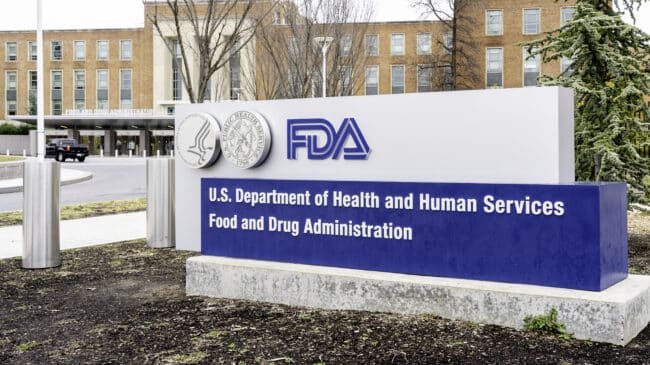Last month, the Reagan-Udall Foundation delivered a damning review of the Food and Drug Administration’s (FDA) performance as a tobacco regulator. Reagan-Udall, an independent body responsible for helping the FDA advance its mission, was tasked by FDA Commissioner Robert Califf with investigating what is going wrong at the agency after a series of embarrassing missteps concerning the regulation of safer nicotine alternatives, like e-cigarettes, to traditional cigarettes. Reagan-Udall convened an expert panel and received input from an array of stakeholders and scholars, including Michelle Minton, a senior fellow at Reason Foundation.
The final report, which found FDA “struggled to function as a regulator in part due to some of its own policy choices,” likely made for uncomfortable reading at the agency.
Since 2009, all tobacco products have been regulated by the FDA. Products not on the market before Feb. 2007, like e-cigarettes, must undergo an expensive and time-consuming application process to be authorized for sale. Before they can be approved, each product must demonstrate to the FDA it is “appropriate for the protection of public health” for both users and non-users. For products that had already been on the market, the deadline to submit their applications was eventually set for Sept. 2020.
But the FDA denied the vast majority of e-cigarette applications, claiming they were of insufficient quality or failed to demonstrate a net public health benefit. As a result, most of the safer alternatives to cigarettes that were on the market prior to 2020 are now illegal in the United States. But the FDA’s lack of guidance to applicants, opacity in decision-making, and blanket denial of all products marketed using non-tobacco flavors left the agency exposed to litigation, with many suspecting the agency’s decisions are heavily influenced by anti-vaping politics rather than science.
Among the recommendations in the Reagan-Udall report was for the FDA to provide a clear definition and interpretation of “appropriate for the protection of public health” and transparency around political considerations and value judgments in the FDA’s decision-making.
During the evaluation, FDA staff complained to Reagan-Udall that decisions on product applications were prioritizing politics over science. The report also called for “more substantial engagement with stakeholders and the public.”
In this context, last week, the American Vapor Manufacturers Association (AVM), a trade organization representing the independent vapor industry, highlighted the FDA’s public calendar for last December. AVM found that FDA officials met with four organizations that are hostile to e-cigarettes as a tobacco harm reduction tool to discuss Reagan-Udall’s findings in the hours and days following its publication. These organizations include the Campaign for Tobacco-Free Kids, American Heart Association, American Lung Association, and the American Thoracic Society.
The FDA declined to comment on whether these meetings were held at its request. But Reason Foundation confirmed with the American Heart Association and the American Thoracic Society that these discussions were held at the agency’s request. The American Vapor Manufacturers’ Association announced that the head of the Center for Tobacco Products, Brian King, had agreed to meet with the FDA for a public dialogue on e-cigarettes, making it the sole group supportive of e-cigarettes as a harm reduction tool to have such a meeting to date.
“Dr. Califf’s rush to meet with four separate organizations dedicated to banning safer alternatives to smoking is emblematic of so many of the serious issues identified by the Reagan-Udall review,” said AVA’s Director of Legislative and Regulatory Gregory Conley. “Other centers at the FDA interact regularly and productively with the industries they regulate, but when it comes to nicotine products, FDA’s top priority is keeping activist groups happy.”
The select access granted to anti-vaping groups is particularly jarring given the FDA’s very different to another Reagan-Udall report—this one on its food program, which also found the agency to be woefully deficient. In that case, The New York Times reported:
The Food and Drug Administration’s food division has no clear leadership, avoids bold policy or enforcement actions, and fosters a culture that doesn’t adequately protect public health, according to a report issued on Tuesday by an agency-related group.
Experts with the group, the Reagan-Udall Foundation, which was asked to examine the food division after widespread criticism stemming from the infant formula crisis, concluded in the report that the division’s management structure and mission should be overhauled.
Dr. Robert Califf, the agency commissioner, released a statement Tuesday saying he would form a group to advise him on the findings and on how to put the recommendations in place. The infant formula crisis was the first major challenge that Dr. Califf confronted this year as commissioner, although the agency has also faced criticism over the regulation of vaping and tobacco products, which prompted a similar review of its tobacco division.
Immediately following the publication of the food report, the FDA held meetings with stakeholders, including campaign groups and the industry itself, notably food and beverage giant Nestlé.
Perhaps in response to AVM’s highlighting of the issue, Dr. Brian King, the director of FDA’s Center for Tobacco Products, agreed to a public discussion on Feb. 24, according to the American Vapor Manufacturers. While this engagement is welcome, the fact that the FDA’s first response to a critical report was to request private meetings with the chief supporters of the status quo inspires little confidence that the agency can adequately change and foster a marketplace conducive to the public health benefits that could come with a science-based tobacco harm reduction approach.
Sadly, it appears any positive changes in the FDA’s approach to safer alternatives to traditional cigarettes may need to come through the new Congress intervening and ensuring the agency takes heed of the very review the FDA commissioned itself.

